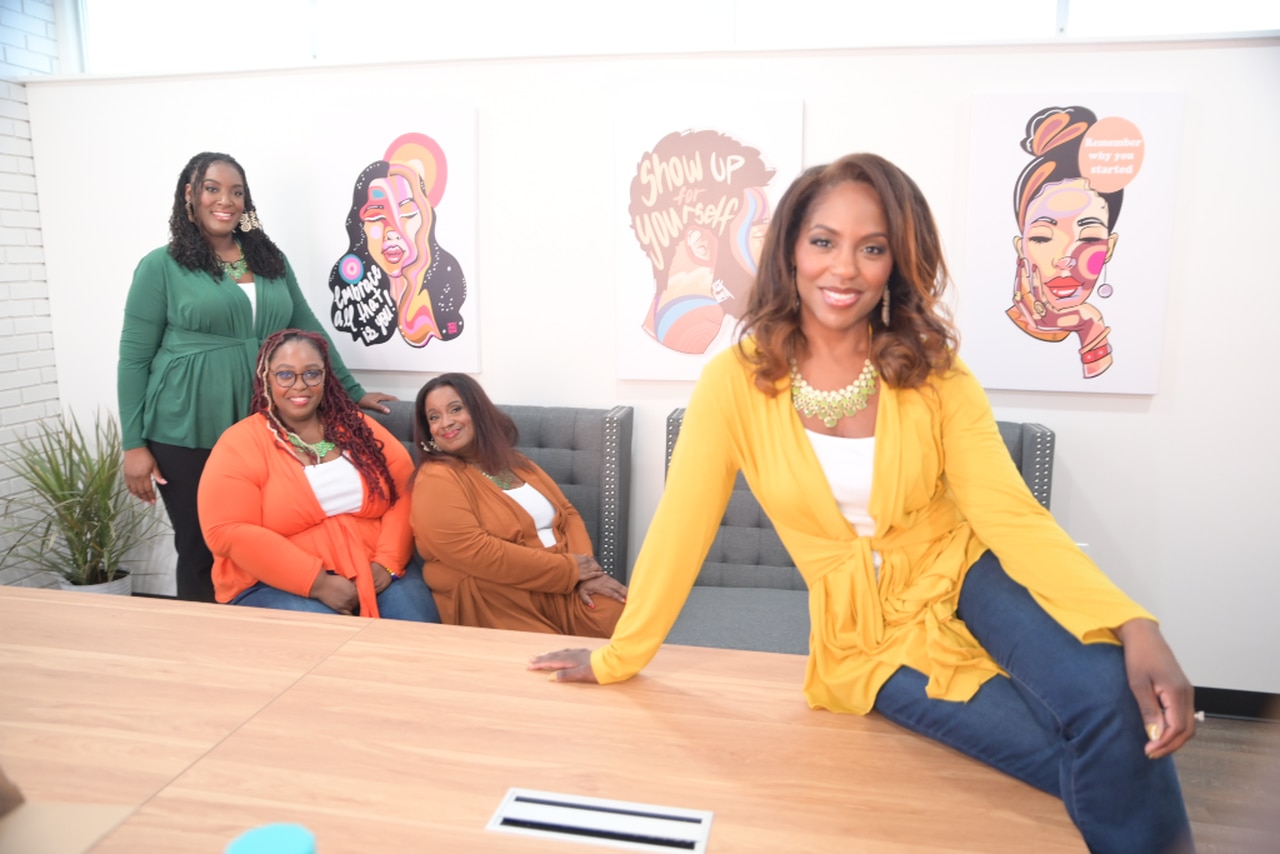Birmingham’s Dr. Nadia Richardson: In forefront of the Black wellness renaissance
This story is republished with permission from The Birmingham Times
Nadia Richardson, PhD, founder and CEO of the Black Women’s Mental Health Institute, a national nonprofit organization dedicated to building awareness of and support for the mental and holistic well-being of Black women and girls, knows what it’s like to take care of others.
And, she also knows the importance of taking care of herself.
“I am a Black woman who is diagnosed as high functioning Rapid Cycling Bipolar. I am a professional woman, a professor, diversity consultant, running [Black Women’s Mental Health Institute], and I have a psychiatrist, a licensed professional counselor, and I take medication,” said Richardson, who is an interdisciplinary adjunct professor slated to teach with UAB this summer. “I really want to normalize those kinds of conversations so people can understand, and you can be successful, but you have to know what’s going on with you first.”
Richardson said she’s seeing more seek care for mental health which plays a role in quality of life. As more people began to seek treatment, the demand for psychological practitioners has increased.
“What I’ve noticed, even in the 10 plus years I’ve been doing this [research] is that there’s this kind of Black wellness renaissance that’s happening where Black people are pushing back against the generational expectation that they’re going to burn themselves out. They’re moving past this idea of, ‘I’ve got to work twice as hard to get half as much as anybody else, especially the white population,” said Richardson, whose work has been recognized nationally and locally.
During a Women’s History Month luncheon at the Birmingham Botanical Gardens several weeks ago Birmingham City Councilor LaTonya Tate, a guest speaker, pledged $30,000 to the Black Women’s Mental Health Institute.
“I met Dr. Nadia Richardson in 2019 and I continued to follow her work and she is doing great things,” Tate said. “Being the Chair of Public Safety [on the council] and working with the mayor’s [Randall Woodfin] team to build an ecosystem around public safety, and one of the parts of the ecosystem is mental health. I just felt at that moment (the event), was important that I made a commitment to continue to support what she’s doing.”
The councilor said mental health has often been referred to as a “silent killer” in the Black community. “I want people to know its ok to seek help for your mental state. Going to somebody that is licensed and understands so that you can get on the right track mentally is very important.”
Richardson said she was “humbled” by Tate’s contribution.
“The fact that she’s able to support the institute, the fact that she wants those kinds of resources available to her constituents, and the fact that she is believes in us to me that’s what is very humbling because we’re still a small organization,” Richardson said. “I know people look at the work that we do, and they think that we have a team but, we are largely volunteer base there’s no paid employees at this time.”
According to Richardson, the $30,000 will go towards about 400 hours of free counseling for the Black Women’s Mental Health Institute – Community Mental Health Internship Program, which trains 10 interns to become licensed mental health professionals. The institute can recruit more interns, train them in cultural responsiveness, professional development, and provide them with a monthly stipend.
“We serve as an internship site, because when you’re trying to become licensed, you have to have 200-300 hours of internship. We see that for Black clinicians, there’s a financial barrier, because who can go work two to three hundred hours for free when you need a paycheck?”
The work is increasing as the institute develops relationships with community agencies that lists it as a resource as a resource to clinicians, Richardson said.
New Aspect of Life
Richardson remembers an article about actress Kerry Washington being described as a martyr. In Black feminist thought there is a concept called “Martyrdom.”
“It talks about how historically Black women have been socialized to be of service to everyone else, but themselves so essentially, they martyr themselves in service to their communities. And I thought it was very striking,” said Richardson, who was inspired to launch No More Martyrs in 2015. It began as a Facebook page to share data and research and in January of 2023, Richardson rebranded her organization No More Martyrs and launched to what is now Black Women’s Mental Health Institute.
“We launched a counseling program here in Alabama that’s currently doing about 200 hours of free counseling a month, and 22 cities and nine counties across the state,” she said.
With the growth the organization has experienced within the first three months of the year “we’re already talking about expanding into Mississippi and Georgia,” said Richardson, who added Black women are doing what they need to do in regard to their mental wellness and they are very unapologetic.
She used her own mental health journey as an example. Richardson said it took a while to get a sense and understanding of why she couldn’t focus and why she was struggling in so many different aspects of her life.
“Once I found that out everything got better. And I want people to know that they should do that too. There are a lot of Black women and people in general walking around that have no idea what’s going on with them.”
For more information visit bwmhi.org
